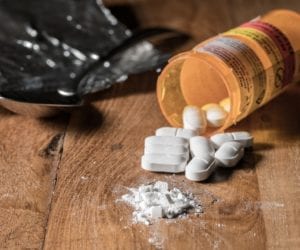Signs of Hydrocodone Addiction

Know the signs of hydrocodone addiction and how detox and rehab at White Sands Treatment Center can help you.
According to the Drug Enforcement Agency (DEA), hydrocodone is the top prescribed opioid medication in the U.S. Hydrocodone is prescribed to treat moderate to severe pain, and is also used as an antitussive. The drug has a strong analgesic quality that is similar to morphine, which makes it effective in relieving pain, and is sometimes abused by patients who suffer from chronic pain. Hydrocodone is often combined with acetaminophen in brands such as Vicodin, Lortab and Lorcet, while other medications may contain a combination of aspirin or antihistamines. Abuse of the drug may begin to reveal signs of hydrocodone addiction that will affect an addict’s brain function and behavior.
Hydrocodone abuse can create a variety of mental and physical effects on the body that may become obvious to anyone who knows the addict. Signs of Hydrocodone addiction can include:
- Euphoria, anger, confusion, mood swings, psychosis, depression, hallucinations
- Sedation, drowsiness, dizziness
- Difficulty concentrating
- Depressed respiratory system, slow heartbeat
- Nausea, diarrhea, vomiting, constipation
- Urinary retention, jaundice, liver damage
- Seizures, coma, death
Abuse of hydrocodone can be fatal especially when the drug is used in combination with alcohol and benzodiazepines, which can slow breathing and cause death. Some hydrocodone addict behavior involves poly-substance abuse, which can cause permanent physical and mental problems and also coma and death. Hydrocodone abuse and addiction is an enormous problem in the U.S. with an estimated 5 million people expected to abuse the drug annually. Hydrocodone addict behavior may also involve people with co-occurring mental disorders also abusing hydrocodone as a way to self-medicate.
Some of the mental health disorders that hydrocodone addicts have are:
- Alcoholism
- Bi-polar disorder
- Substance abuse disorder
- Chronic depression
- Anxiety disorder
- Post traumatic stress disorder (PTSD)
- Personality disorders
Hydrocodone addict behavior can also include:
- Lying about pain to get prescriptions
- Doctor shopping to get more prescriptions for the drug.
- Taking more than the recommended dosage of the drug
- Withdrawing from family and friends, social isolation to use drugs
- Borrowing or stealing money
- Neglecting duties and responsibilities
- Criminal activity to get money for drugs
- Personality, behavior and attitude changes
- Mood swings
Hydrocodone addiction can be caused by multiple factors such as trying to cope with chronic pain. A patient with chronic pain may eventually build up a tolerance to hydrocodone and this will lessen the effects of the drug. To maximize the effects of the drug again, the patient would have to take more than the recommended dosage and this can cause addiction to the drug. Doctors who prescribe hydrocodone to their patients should closely monitor them to ensure that abuse and addiction do not occur. Doctors may also include some type of pain management treatment options for their patients.
Some people who are struggling with the effects of a mental illness may also abuse hydrocodone to alleviate mental and emotional anguish. It can be an easy way to escape from one’s problems, but it is not a healthy solution to problems because eventually hydrocodone abuse will only create more problems. People who use hydrocodone to self-medicate should speak with their mental health counselor to find a more effective and safer alternative.
Other people who may be at risk of hydrocodone abuse are those who have been traumatized, abused, homeless,, in poverty or tempted by peer pressure. Eventually these people may become addicted to the drug and begin to exhibit hydrocodone addict behavior, which can include low self-esteem and feelings of sadness and depression. The addict’s personality may shift and they may begin to feel anger and rage. He can also experience an altered perception of reality, which can cause him to feel confused and disoriented. All these different mood swings will begin to take their toll on the addict and create anxiety and paranoia. Over time, the addict’s mental state will begin to deteriorate along with his physical state. He may become estranged from his family and friends and find himself alone and isolated.
If you have a loved one who is exhibiting hydrocodone abuse signs, you should talk to him and convince him to get rehabilitation treatment now before it is too late. Your loved one can receive a safe detox from hydrocodone at a drug treatment center, and also be treated for any other problems they are facing. By completing a comprehensive drug treatment program, your loved one can be free from hydrocodone addiction.
If you or a loved one needs help with abuse and/or treatment, please call the WhiteSands Treatment at (877) 855-3470. Our addiction specialists can assess your recovery needs and help you get the addiction treatment that provides the best chance for your long-term recovery.
